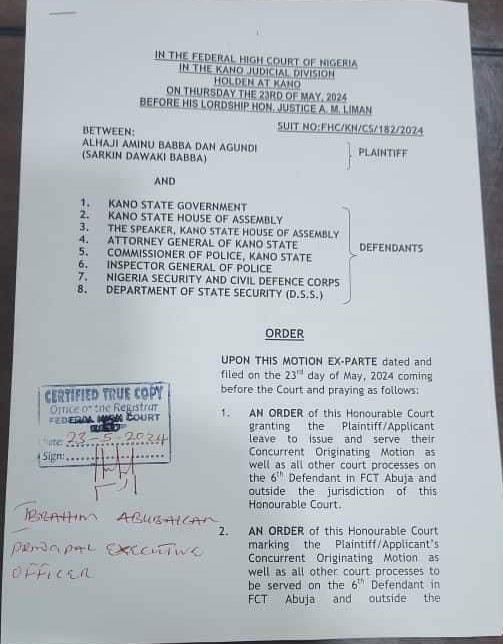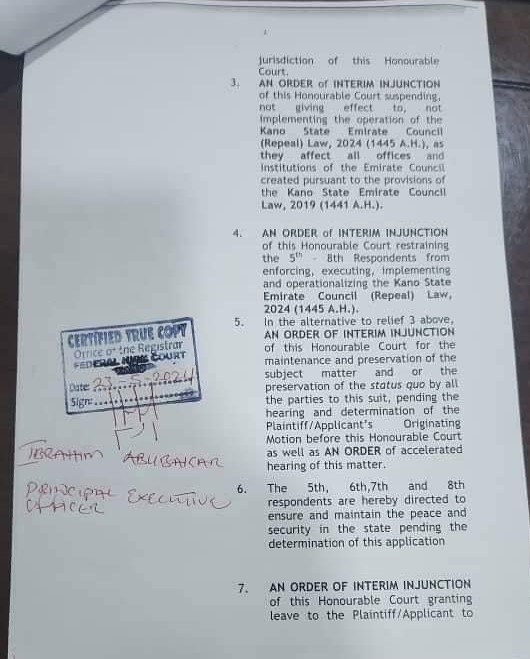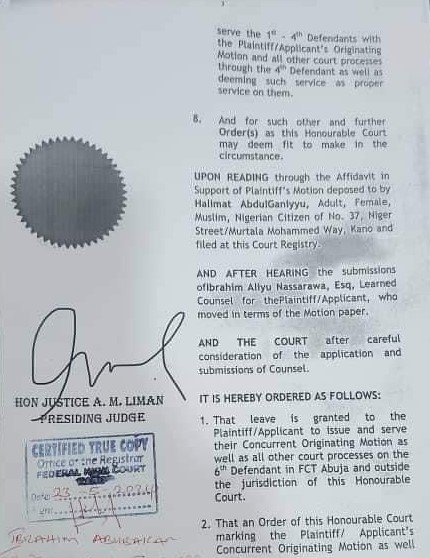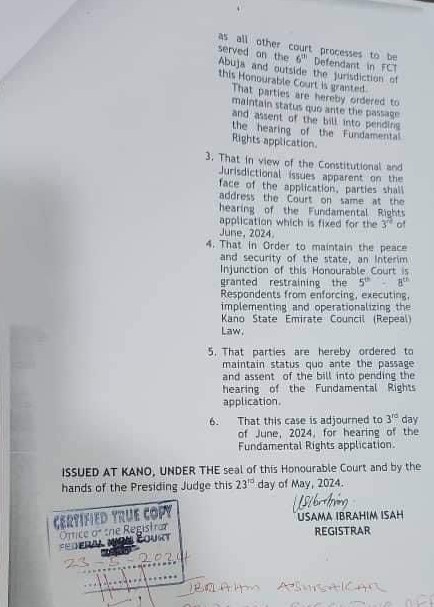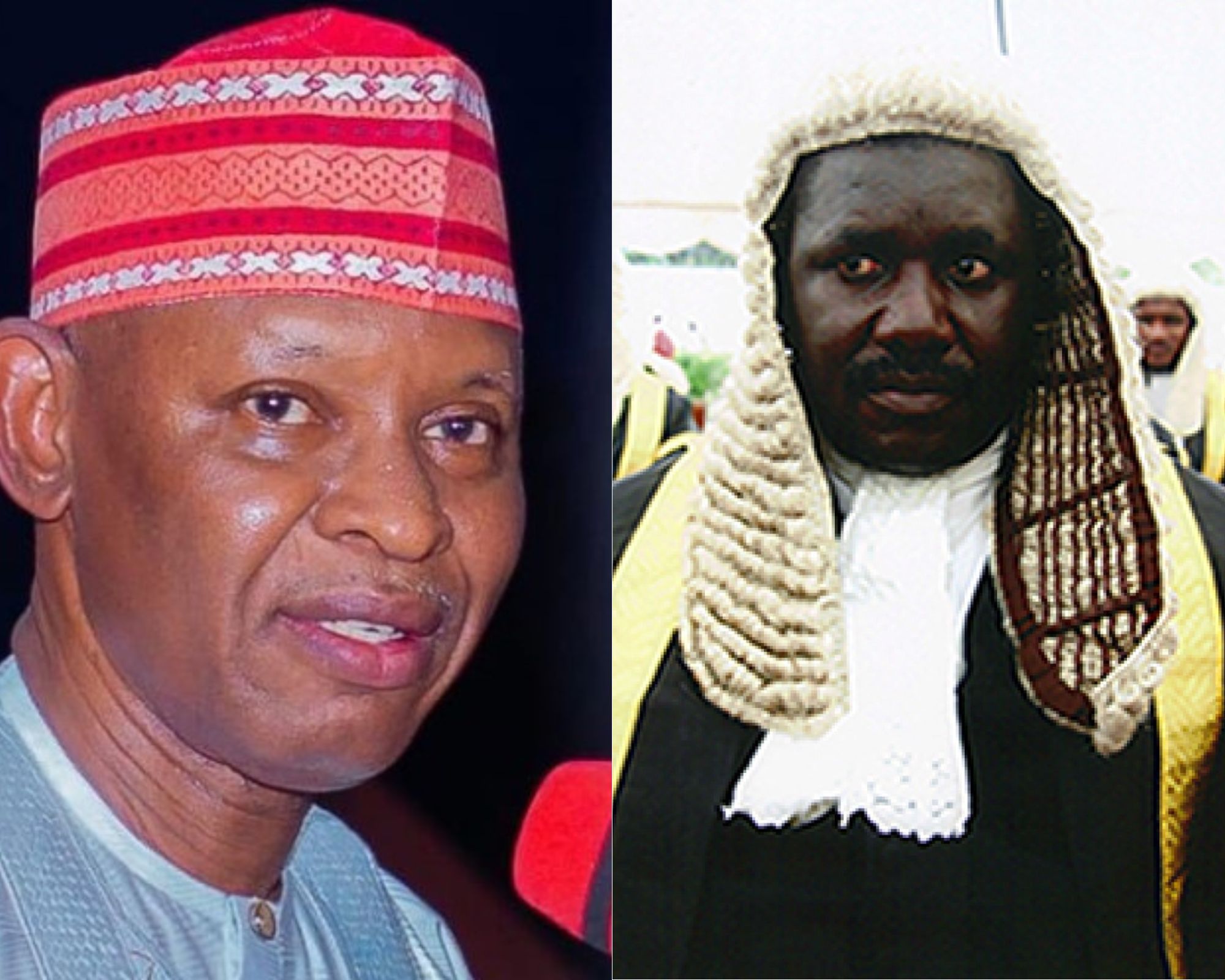The governor of Kano State Abba Kabir Yusuf, on Friday alleged that Justice Mohammed Liman of a Federal High Court Kano made the order stopping the reinstatement of Sanusi Lamido as the 16th Emir of Kano from the United States.
Governor Yusuf has said he will report the judge to the Nigeria Governors’ Forum.
Justice Liman had granted the order in an application filed by the Sarkin Dawaki Babba of the Kano Emirate, Aminu Babba Dan Agundi, to stop the Kano State Government from enforcing the Kano State Emirate Council Repeal Law which dethroned all five Emirs in the state.
However, Yusuf, while reacting to the court order after issuing the reinstatement letter to Lamido at Africa House, Kano State Government House, said, “The person that issued the court order was in America but he is ordering us to stop what we are doing. This issue of abuse I must present it before the Governor’s Forum so that we can tackle it accordingly.
“We are agents of following due process, that’s why we did what we did openly before everybody. Those that are meant to maintain that rule of law remains must follow that also.”
Legal practitioners have questioned the jurisdiction the Federal High Court has over Kano State Emirate tussle and/or Kano State legislative matter.
A lawyer who elected to speak under anonymity sent a message to Law & Society saying: “This is nonsense. It’s an act of judicial recklessness and impunity. The authorities are clear. Merely including Inspector General of Police, Nigerian Security and Civil Defence Corps, and DSS as parties in the suit does not vest jurisdiction of such matters on the Federal High Court.”
Law teacher Sylvester Udemezue in an article published by Law & Society said: “Chieftaincy disputes are clearly outside of it, every lawyer ought reasonably to know. Filing the suit at the Federal High Court is a form of disloyalty to the extant law, which is forbidden by RULE 15(3)(a), which provides that “a lawyer must not give service to the client which the lawyer knows or ought reasonably to know is capable of causing disloyalty to the law or bringing disrespect to the holder of any public office”. Also, by virtue of RULE 15(1)(a)&(b), a lawyer ought to keep strictly within the law notwithstanding any contrary instructions by his client and must use his best endeavours to prevent his client from causing a breach of the law”. Finally, RULE 15(3)(b)&(c), RPC provides that ‘a lawyer shall not file a suit or knowingly advance a Claim that is unwarranted under existing law’…”
Below are the controversial orders.
